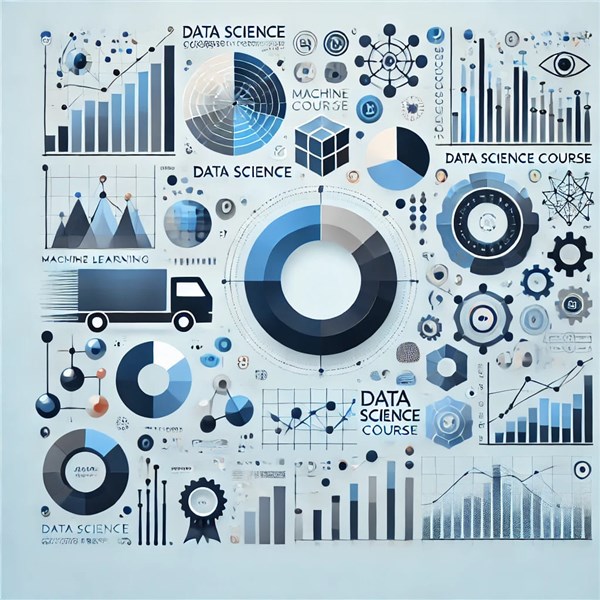Unable to find what you're searching for?
We're here to help you find it
In today’s rapidly evolving job market, the demand for data science professionals is soaring. Organizations across various industries are recognizing the value of data-driven decision-making and the insights derived from data analysis. As a result, many individuals are seeking to transition into data science careers, leveraging courses to acquire the necessary skills and knowledge. This blog will explore how data science courses can facilitate a successful career transition, focusing on skill development, real-world applications, networking opportunities, and the growing relevance of data science in various sectors.
Before diving into the benefits of data science courses, it’s essential to understand what data science entails. Data science combines statistics, mathematics, programming, and domain expertise to extract meaningful insights from structured and unstructured data. Key components of data science include:
Given this multifaceted nature, individuals from diverse backgrounds can successfully transition into data science roles by gaining the right training and knowledge.
One of the primary advantages of enrolling in a data science course is the structured learning environment it offers. Here’s how these courses can help in skill development:
Most data science courses provide a comprehensive curriculum that covers essential topics, including statistics, programming (Python, R), data manipulation (using libraries like Pandas), data visualization (using tools like Tableau or Matplotlib), and machine learning. By following a structured curriculum, learners can build a solid foundation in data science concepts and methodologies.
Courses often incorporate hands-on projects and assignments that enable students to apply theoretical knowledge to real-world scenarios. This practical approach helps learners develop the following skills:
Data science courses often cover industry-standard tools and software, such as SQL for database management, Tableau for data visualization, and Scikit-learn for machine learning. Familiarity with these tools can significantly enhance a learner’s employability, as employers seek candidates who can hit the ground running.
One of the most effective ways to prepare for a career in data science is to understand how theoretical knowledge applies in real-world situations. Data science courses typically include case studies and projects that demonstrate how data analysis is used across different industries. This exposure can be invaluable for individuals looking to transition into specific sectors, such as healthcare, finance, marketing, or technology.
Many data science courses offer projects tailored to specific industries. For example, a course might include a project that involves analyzing healthcare data to improve patient outcomes or a marketing campaign's effectiveness. These industry-specific projects allow learners to:
As individuals transition into data science, having a strong portfolio is essential for showcasing their skills to potential employers. Data science courses often emphasize portfolio development, encouraging learners to compile their projects and analyses into a cohesive presentation. A well-structured portfolio can:
Networking is a critical component of any career transition, and data science courses can facilitate valuable connections within the industry. Here’s how:
Many data science courses are taught by experienced instructors who have worked in the field. These instructors often provide valuable insights into industry trends, job opportunities, and best practices. Engaging with instructors can also lead to potential mentorship opportunities, where learners can seek guidance on navigating their career transitions.
Enrolling in a data science course provides an opportunity to connect with like-minded individuals who are also pursuing careers in data science. Building a network with peers can lead to:
Many data science courses offer access to industry events, webinars, and workshops where learners can meet professionals and expand their networks. These events can be invaluable for gaining insights into the job market and industry trends while also providing opportunities to connect with potential employers.
As businesses increasingly rely on data to drive their decision-making processes, the demand for skilled data professionals continues to rise. Understanding the growing relevance of data science can motivate individuals to pursue this career path. Here are some key points:
According to various reports, data science roles are among the fastest-growing jobs in the tech sector. From data analysts to machine learning engineers, the variety of roles available allows individuals to find positions that align with their interests and expertise.
Data science skills are applicable across various industries, including finance, healthcare, retail, and technology. This versatility allows professionals to explore diverse career paths and industries, providing opportunities for growth and advancement.
The demand for data science professionals often translates to competitive salaries. Many entry-level data science positions offer salaries that are higher than average, making this career path an attractive option for individuals looking to maximize their earning potential.
Conclusion
Transitioning to a career in data science can be a rewarding and fulfilling journey, especially with the right training and resources. Data science courses provide a structured learning environment that equips individuals with the necessary skills, practical experience, and networking opportunities to succeed in this competitive field. By leveraging these courses, aspiring data professionals can enhance their employability, navigate the job market effectively, and position themselves for long-term career success in data science. Whether you're coming from a technical background or exploring a new career path, data science courses can be the stepping stone to a brighter future.
The data science course 2020 has been updated to include the latest trends and technologies in the field of data science. This course will equip you with the skills needed to analyze, interpret, and make predictions based on complex data sets.
In conclusion, a career in data science is promising and rewarding. Whether you are a beginner or an experienced professional, a certified data science course can help you transition to a new career.
At Koenig Solutions, a leading IT training company, we offer certifications in top technology courses, including data science. Our courses are designed to equip you with the skills needed to thrive in today's data-driven world.

Aarav Goel has top education industry knowledge with 4 years of experience. Being a passionate blogger also does blogging on the technology niche.










